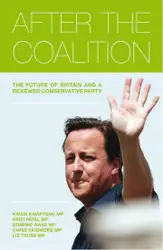In 'Proportional Representation Applied To Party Government,' editors T.R. Ashworth and Henry Ashworth assemble a compendium that meticulously examines the intricate relationship between electoral systems and democratic governance. This anthology distinguishes itself by interweaving a diverse array of essays, which transcend simple advocacy for proportional representation, to critically engage with its implications on party politics, governance, and democratic engagement. The collection stands out for its scholarly rigor and the breadth of perspectives it offers, including standout analyses on the operational challenges and successes of proportional representation in various contexts. The diversity of literary styles, from analytical essays to case study evaluations, provides readers with a comprehensive understanding of the subject matter within its wider political and historical milieu. The contributing authors, hailing from a spectrum of political sciences and historical research backgrounds, enrich this anthology with their collective expertise and distinct insights. Their contributions not only reflect the contemporary discourse surrounding electoral reform but also chart the evolution of democratic ideals in relation to party government. This collaborative effort aligns with ongoing debates in political scholarship, making it a timely intervention in the study of electoral systems and their impact on political representation and governance. 'Proportional Representation Applied To Party Government' is an essential read for scholars, political enthusiasts, and policymakers alike. Its meticulously curated essays offer a multifaceted exploration of proportional representation's role in enhancing or complicating the ideals of democratic participation and representation. Readers are invited to delve into this thoughtful compilation for its educational value, the richness of debate it encapsulates, and the unique opportunity it provides to engage with a wide range of arguments on a topic of enduring significance in political science and democratic theory.

Elecciones 2014 en Colombia: candidatos, estrategia y resultados. Libro independiente
Margarita Batlle
book
Popular Economics: What the Rolling Stones, Downton Abbey, and LeBron James Can Teach You about Economics
John Tamny
book
First Man: The Life of Neil Armstrong
James Hansen
book
Rejuvenate!: (It's Never Too Late)
Eartha Kitt
book
Little Book of Abba
Pat Morgan
book
Womb : The Inside Story of Where We All Began
Leah Hazard
audiobook
The Black Male Handbook : A Blueprint for Life
Kevin Powell
book
My Mother. Barack Obama. Donald Trump. And the Last Stand of the Angry White Man.
Kevin Powell
audiobookbook
First Man : The Life of Neil A. Armstrong
James R. Hansen
audiobookbook
Eleanor in the Village : Eleanor Roosevelt's Search for Freedom and Identity in New York's Greenwich Village
Jan Jarboe Russell
book
DemoCRIPS and ReBLOODlicans : No More Gangs in Government
Jesse Ventura
book
After the Coalition
Kwasi Kwarteng
book

